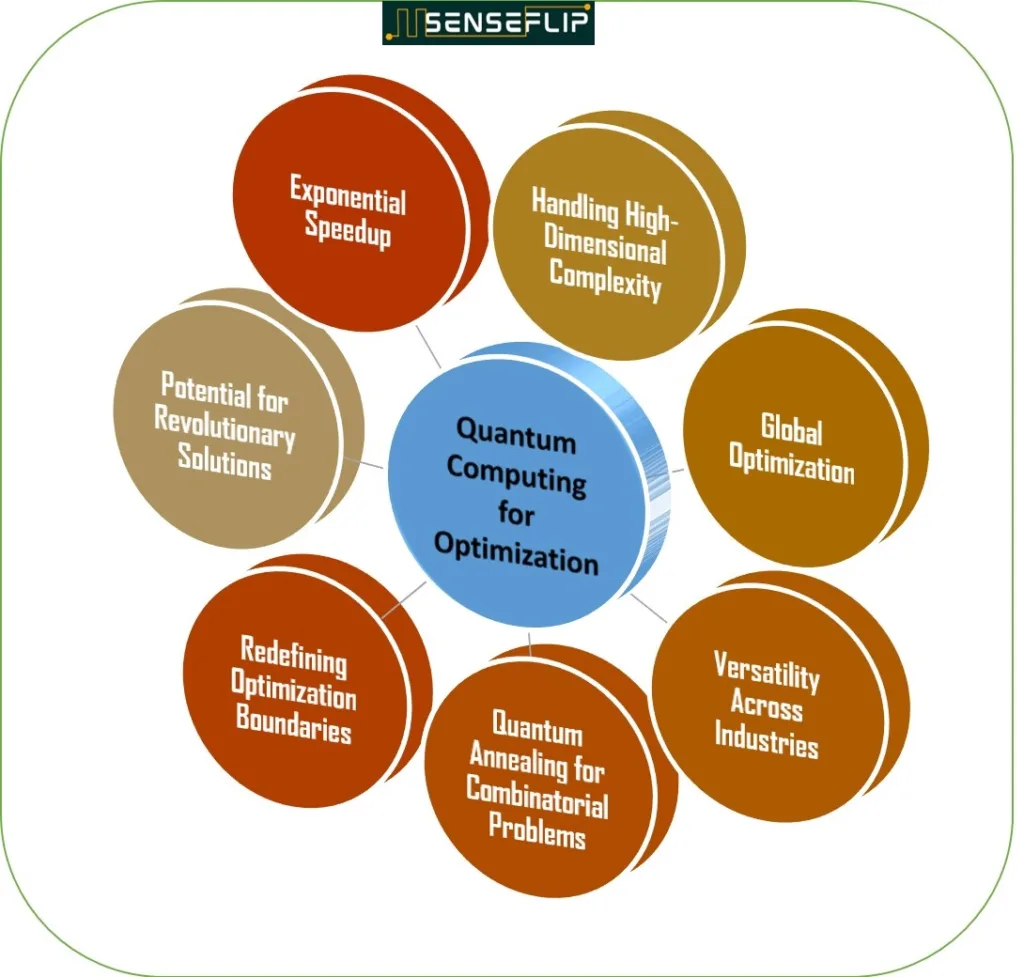
Step into the awe-inspiring world of Quantum Computing, where the rules of classical computing are shattered, and new frontiers are unlocked! While classical computers rely on bits, limited to 0s and 1s, quantum computing ventures into the quantum realm, embracing mind-boggling principles from quantum mechanics.
Picture qubits, the magical building blocks of quantum computing, as flexible acrobats performing a never-ending dance. Unlike their binary counterparts, qubits can be 0 and 1 simultaneously, thanks to the mesmerizing concept called superposition. This extraordinary ability allows quantum computers to juggle an astronomical number of possibilities at once, making them the ultimate multitaskers!
But that’s not all – prepare to be dazzled by “entanglement,” where qubits form unbreakable bonds regardless of the distance between them. Imagine qubits as cosmic dance partners, perfectly synchronized in their movements. This synchronized entanglement empowers quantum computers to perform tasks with unparalleled efficiency and speed, tackling problems that seemed insurmountable to classical computers.
So, what does this mean for the future? A thrilling realm of possibilities awaits! From cracking unbreakable codes to unraveling the mysteries of the universe, quantum computing is the key to a future we once only dreamed of in science fiction. While we grapple with challenges, this technology’s potential knows no bounds. Buckle up, as quantum computing propels us into a thrilling, uncharted territory of computation!
Understanding Optimization Problems
In the dynamic world of computation, a captivating realm of challenges is known as Optimization Problems. From unraveling complex puzzles to optimizing efficiency, the significance of optimization problems extends far and wide across various disciplines.
Optimization problems are the masterminds behind the scenes, orchestrating the dance of efficiency in our daily lives. In the realm of finance, they work their magic to maximize returns and fine-tune investment portfolios, while in the healthcare realm, they carefully calibrate personalized drug dosages, ensuring effective treatments tailored to individual needs.
As we traverse the terrain of transportation, telecommunications, and energy, it’s optimization problems that pave the way for seamless operations and resource utilization. They are the unsung heroes powering logistics, telecommunications networks, and sustainable energy solutions, making our interconnected world function like a well-oiled machine.
Optimization problems come in diverse shapes and sizes, each demanding a unique approach to finding the optimal solution. Some common types include:
Linear Programming: Optimizing a linear objective function subject to linear constraints. Real-world applications include resource allocation and production planning.
Integer Programming: Similar to linear programming, but with the added condition that the variables must take integer values. This is employed in supply chain optimization and project scheduling.
Quadratic Programming: Involves optimizing a quadratic objective function while adhering to linear constraints. Used in portfolio optimization and machine learning algorithms.
Combinatorial Optimization: Concerns finding the best combination from a finite set of possibilities. Applications encompass routing problems, such as the famous Traveling Salesman Problem.
Global Optimization: Involves searching for the absolute best solution across a vast solution space. Used in engineering design and parameter estimation.
Advantages of Quantum Computing for Optimization
Buckle up, because we’re about to embark on a mind-bending journey into the quantum realm, where optimization problems meet their match! Quantum computing is like a superhero with incredible powers, armed with quantum algorithms that give it a distinct advantage over classical techniques.
Quantum Algorithm Sorcery: The Need for Speed
Imagine you have a gazillion possible solutions to an optimization problem. Grover’s algorithm, the wizard of quantum search, swoops in and uncovers the best one in a flash! It’s like finding a needle in a haystack without breaking a sweat. Quantum Approximate Optimization Algorithm (QAOA) joins the party, leading us to near-perfect solutions, and classical methods can’t keep up with this quantum speed demon.
Quantum Computing to the Rescue: Slaying the “Curse of Dimensionality”
Let’s face it; high-dimensional optimization problems can be the stuff of nightmares. But fret not, quantum computing is our hero in shining armor, conquering the dreaded “Curse of Dimensionality” with style. Armed with parallelism, it dances through vast solution spaces, untangling complexities that leave classical methods scratching their heads.
Global Optimization Unleashed: Where Quantum Shines Bright
In the battle of local optima versus global optima, quantum computing emerges victorious. While classical methods often settle for suboptimal solutions, quantum algorithms aim high and hit the bullseye. They have the uncanny ability to navigate through the entire optimization landscape, leaving no stone unturned in the search for the absolute best.
Quantum Annealing: A Combinatorial Conqueror
Enter Quantum Annealing, a formidable force wielded by pioneers like D-Wave. When faced with combinatorial optimization puzzles – finding the perfect combination from a sea of possibilities – Quantum Annealing takes charge. It pierces through complexity like a sharp arrow, making logistics and scheduling challenges bow before its quantum might.
Quantum Renaissance: Rewriting the Optimization Story
Quantum computing is no ordinary technology; it’s a catalyst for innovation. It pushes boundaries and challenges the status quo. With its superpowers, it offers novel solutions to optimization problems that seemed impossible before. The world is on the brink of a quantum renaissance, where impossible dreams become reality.
From Finance to Pharmaceuticals: Quantum’s Versatile Symphony
Quantum computing’s impact stretches far and wide, from financial wizards optimizing portfolios to scientists unlocking the secrets of drug discovery. It orchestrates a versatile symphony, transforming industries with its optimization prowess, leaving traditional methods playing catch-up.

Real-world Applications of Quantum Optimization
Supply Chain Optimization:
Quantum computing has the potential to revolutionize supply chain management by significantly improving efficiency and reducing costs. With its ability to perform complex calculations exponentially faster than classical computers, quantum algorithms can optimize routes, inventory, and delivery schedules with unprecedented speed and accuracy.
By finding the most cost-effective solutions in real time and responding swiftly to changing demands, quantum computing empowers supply chains to stay nimble, adaptable, and resilient in the face of uncertainties. This quantum leap in supply chain management promises to streamline operations, enhance resource utilization, and unlock substantial cost savings, propelling the industry into a new era of efficiency and profitability.
Portfolio Optimization in Finance:
Quantum computing can revolutionize portfolio optimization in finance, offering better risk management and higher returns. Its exponential speedup allows rapid analysis of vast investment scenarios, leading to well-diversified portfolios that balance risk and reward more effectively.
Quantum algorithms can process real-time market data, enabling dynamic adjustments and enhancing portfolio resilience. With quantum precision, investors can uncover hidden patterns and opportunities, leading to superior returns and a quantum leap in financial decision-making.
Network and Communication Optimization
Network and Communication Optimization focuses on fine-tuning network configurations, routing, and communication protocols to enhance data transfer and network performance. It aims to minimize delays, reduce congestion, and maximize resource utilization, ensuring faster and more efficient communication systems. Quantum computing offers the potential for exponential speedup in optimization algorithms, promising a revolution in network efficiency.
Energy Grid and Resource Allocation
Energy Grid and Resource Allocation optimize energy distribution and resource usage in power grids for maximum efficiency and sustainability. It balances supply and demand, reduces waste, and lowers costs while promoting clean energy sources.
Quantum computing holds the potential to revolutionize Energy Grid and Resource Allocation by providing exponential speedup in complex optimization problems. This can lead to more efficient and intelligent energy management, ushering in a quantum-powered era of sustainable and eco-friendly energy systems.
Conclusion
Quantum computing stands as a formidable force that promises to revolutionize optimization across various fields. Its exponential speedup, powered by ground-breaking algorithms, unlocks unparalleled efficiency and accuracy in solving complex problems. From supply chain management to finance and beyond, quantum computing offers a quantum leap in performance, enabling better risk management, higher returns, and streamlined operations.
As we journey into the quantum era, we invite you to delve deeper, explore further, and stay abreast of the rapid advancements in this transformative technology. The future is quantum, and the opportunities it presents for optimizing real-world challenges are boundless. Embrace the quantum revolution and witness the limitless potential it holds for shaping a brighter, more efficient world.
